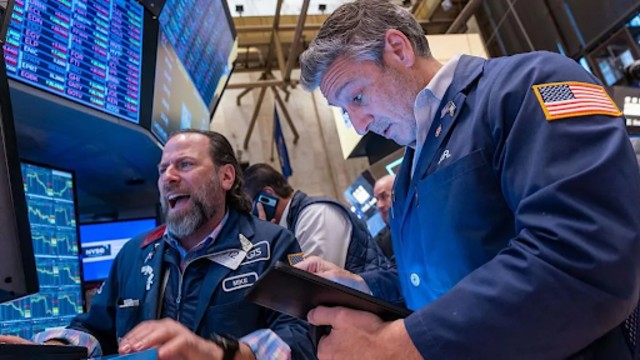
Global Stock Markets Reel from Steep Declines Triggered by U.S. Tariffs. Getty Images
Stock markets across the globe are undergoing their sharpest declines in recent years, raising concerns of a potential financial crisis. The turmoil comes in the wake of sweeping tariffs imposed by the United States, sparking fears of slowing global economic growth.
How Bad Is It?
The term “stock market crash” isn’t used lightly. Historically, it’s reserved for dramatic single-day drops of over 20%. The infamous Black Monday on 19 October 1987 saw the U.S. stock market plummet by 23% in one day. Likewise, in 1929, markets crashed by over 20% in just two days, triggering the Great Depression.
In comparison, the recent slide is not officially a crash — yet. The U.S. market has dropped around 17% from its peak in February and stands 2% lower than this time last year. While the UK’s FTSE index has also taken a hit, it hasn’t fallen quite as steeply, partly because it closes before U.S. trading ends and reflects American market shifts the following day.
Biggest Drops Since the Pandemic
Despite not crossing the 20% threshold, these rapid declines mark the worst global market slump since the onset of the Covid-19 pandemic in early 2020. A 20% fall from a recent peak typically signals a “bear market” — one that suggests more declines are likely. We’re now dangerously close to that benchmark.
What It Means for You
Although not everyone directly trades in the stock market, most people are still exposed — especially through pensions. There are two main types of pensions: defined benefit plans, which promise a set retirement income, and defined contribution plans, where the value fluctuates with market conditions.
While defined contribution plans are more exposed to market volatility, not all the funds are tied up in stocks. A good portion is usually invested in safer assets like government bonds. These tend to rise in value when markets fall, acting as a buffer for falling share prices.
This has been the case during the current downturn. Government bonds and other safe-haven assets such as gold have gained ground, easing some of the pain for retirement savers — particularly those nearing retirement, who typically have a larger share of their portfolios in bonds.
Looking at the Bigger Picture
While individual losses may seem alarming, long-term investors should remain calm. Historically, markets have bounced back, and pension savings are built for the long haul. But this moment still matters — and not just for investors.
Stock prices reflect expectations of future company profits. The sudden market dip signals fears that many businesses could see shrinking profits due to rising costs, reduced demand, and hesitant consumer spending — all expected outcomes of the new U.S. tariffs.
A Warning for the Global Economy
The most concerning takeaway isn’t just the hit to personal investments — it’s the broader economic signal. Falling markets often foreshadow economic downturns. If companies start pulling back on investment or laying off workers, the impact of tariffs could ripple far beyond Wall Street.
In short, while your pension may ride out the storm, the bigger worry lies in what this moment says about the future of the world economy.















